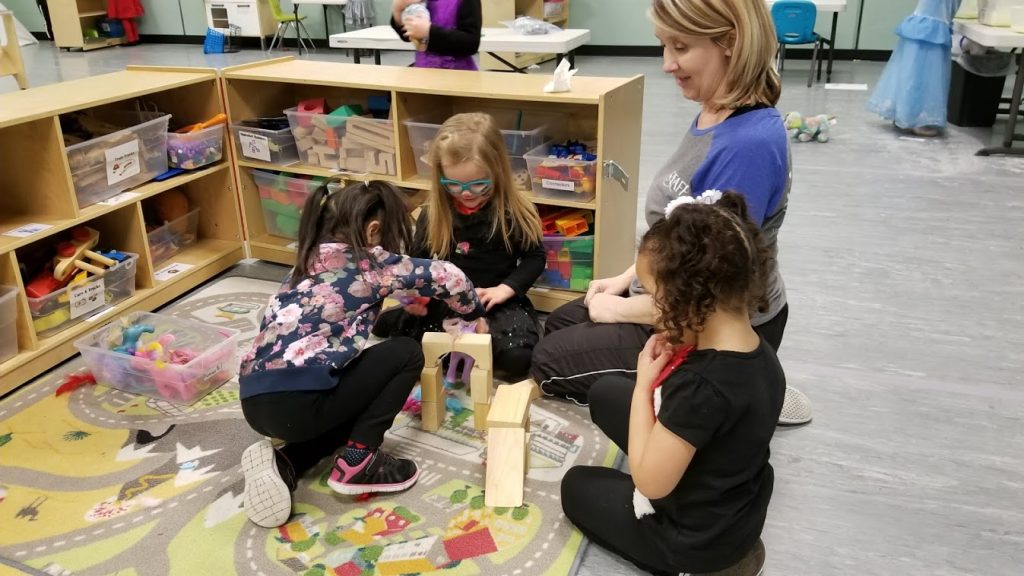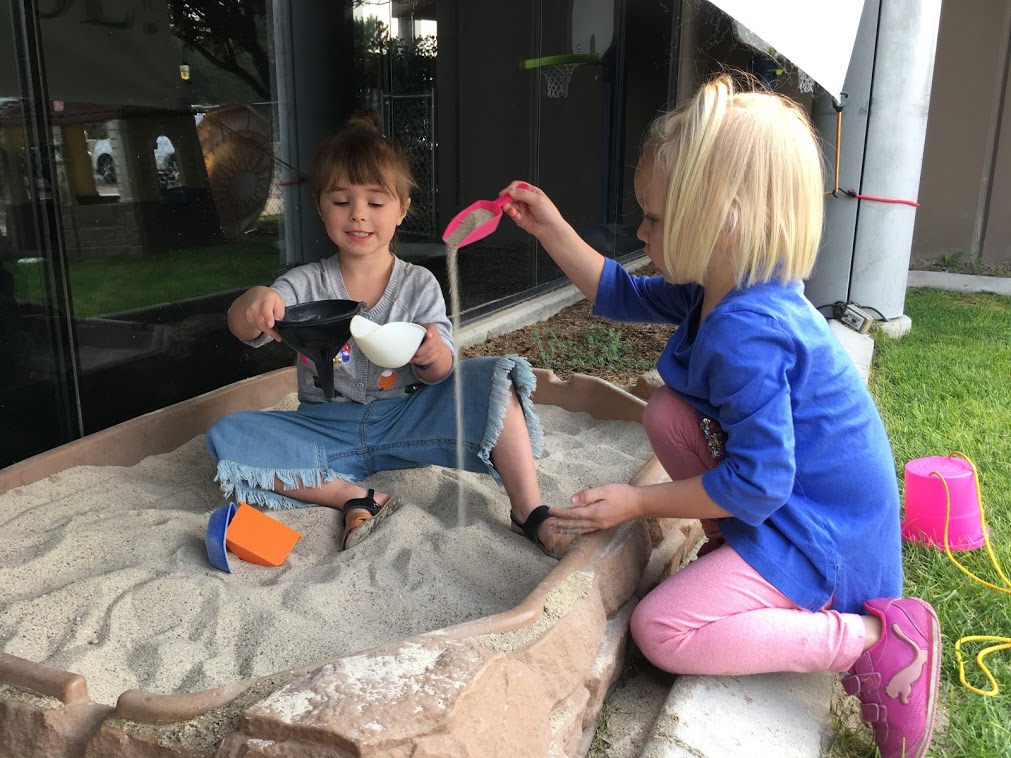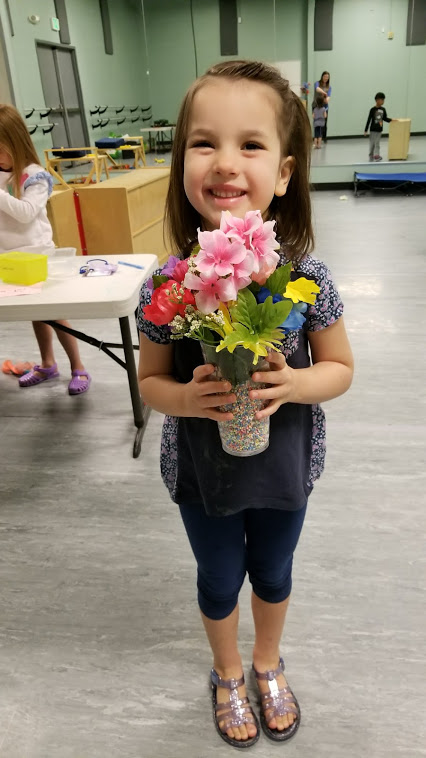“R-E-S-P-E-C-T. Find out what it means to me!” Respect does not come naturally to most children. As Aretha says, they have to find out what it means.
But for harmony to exist, it’s critical that we all know, understand, and use respect. Your preschooler is in the process of learning about respect for herself, for friends, for teachers, for parents, for possessions, for property, for other opinions, and so much more. Use these seven tips to teach respect to your preschooler.
Model Respect
You tell your child he can have only one cookie because it’s important to not eat too much sugar. You then proceed to eat four cookies right in front of him, while he angrily counts each cookie that passes past your lips.
This isn’t fair, right? (And if you really did this, you wouldn’t be teaching a correct principle about sugar, either.) It’s the same with teaching respect. If you want your child to be respectful towards you, family members, pets, possessions, other people, and more, you also have to be respectful to your child and to those same people, animals, and possessions.
Make sure you use polite language when speaking to and about other people. Use polite language when speaking to your child. Take care of your possessions, and be gentle with your pets. And while it’s not reasonable to point out each respectful move you make, you can occasionally describe why you chose to use the words “please” and “thank you” at the store. Or why, even though you were in a hurry, you chose to let an elderly customer go ahead of you.
Expect Respect
Preschoolers are capable of being respectful, and when you expect it, they will learn to live up to that expectation. This doesn’t mean they’ll get it perfectly every time, and it doesn’t mean you should be unyielding in your expectations. It may take years for them to remember rules like saying “thank you” at a restaurant. Be patient, and keep expecting. Your gentle encouragement and praise (“I’m so impressed you remembered to say ‘please’ on your own!”) will help them learn to be respectful over time.
Identify
Is your child truly being disrespectful, or is she distracted? You may have asked her to tidy up the playroom, but she was busy trying to get batteries back into her favorite light-up toy as you gave your request. She didn’t hear you, so she continued fumbling with the batteries. To you, it may look like disrespectful ignoring. But before you get upset, look at her and identify why she isn’t being respectful to you.
It’s also possible that your child didn’t understand your instructions. When you asked him to go to his room, get his shoes and coat, and bring them back to you so you could help him put them on, he may not have understood the entire set of instructions. That’s a lot for a little one to retain. Make sure you’re giving simple, easy-to-follow instructions that aren’t hard to mess up.
Name Your Child’s Emotions
Small children don’t always know what to do with their big feelings, so those feelings come out in hurtful words or actions. They might scream that they hate you, or they might hit a sibling or the cat. This is, of course, disrespectful, but keep in mind that these are huge opportunities for you to teach respect.
Instead of reacting in anger, name your child’s emotions. When you name your child’s emotions, they feel understood and secure. They also understand themselves better. They are then in a better position to hear gentle corrections.
For example, if your child throws a toy across the room when you ask her to wash her hands for dinner, you could say, “You’re upset because you were enjoying playing with your toys, and you don’t want to be interrupted.”
Once she hears that you understand — and she understands her own reaction — you can say, “Throwing toys is not the correct way to show that we’re upset, though. The toy could break, or it could break something else in the room.”
Your calm reaction will demonstrate to your child that it’s possible to be respectful even when we’re angry. It will also help your child to come down from her big emotions.
Role Play
We all struggle with selfish feelings, and preschoolers are so new to the world that they definitely don’t have a handle on those feelings yet. That’s where role play comes in when you’re trying to teach respect. When you act out scenarios that require manners (not interrupting, saying “thank you,” being gentle with a friend’s toy), your child learns what it looks and feels like to be respectful. This makes it easier for her to rely on those learned skills when the time comes for her to be respectful “in the wild.”
Teach About Differences
A lot of the disrespect that exists in our world today stems from people who can’t handle different opinions, races, religions, and more. Start young, and teach your child about these differences. Teach respect by helping them see it’s okay to have differences, that everyone is special in their own way. Teach them to look for the similarities among the differences. This will help your child to avoid feeling threatened or angry about people who are different from her.
Be Kind When They Mess up
Everyone makes mistakes. As adults and parents, we all know that better than anyone else. Remember that your child is going to mess up — sometimes in big ways. If you fly off the handle, put your child down, or criticize him for being stupid, he will not learn from his mistakes; he’ll only learn to fear you. He also won’t learn respect.
If you can be understanding and speak respectfully to your child when they mess up, they will feel your love and will feel capable of doing better the next time. They’ll also feel respected, and will want to return that respect to others.
A note: Be kind to yourself when you mess up. You won’t do everything perfectly. Apologize to your child when you make mistakes, accept your child’s forgiveness, and forgive yourself.
You’re working hard to teach your child respect, and your efforts will pay off. At UDA Creative Arts Preschool, we support our parents’ tireless efforts by teaching the children to respect themselves, their friends, the items at preschool, people who are different, and so much more. For a tour of the preschool, give us a call at (801) 523-5930, or contact us online.




